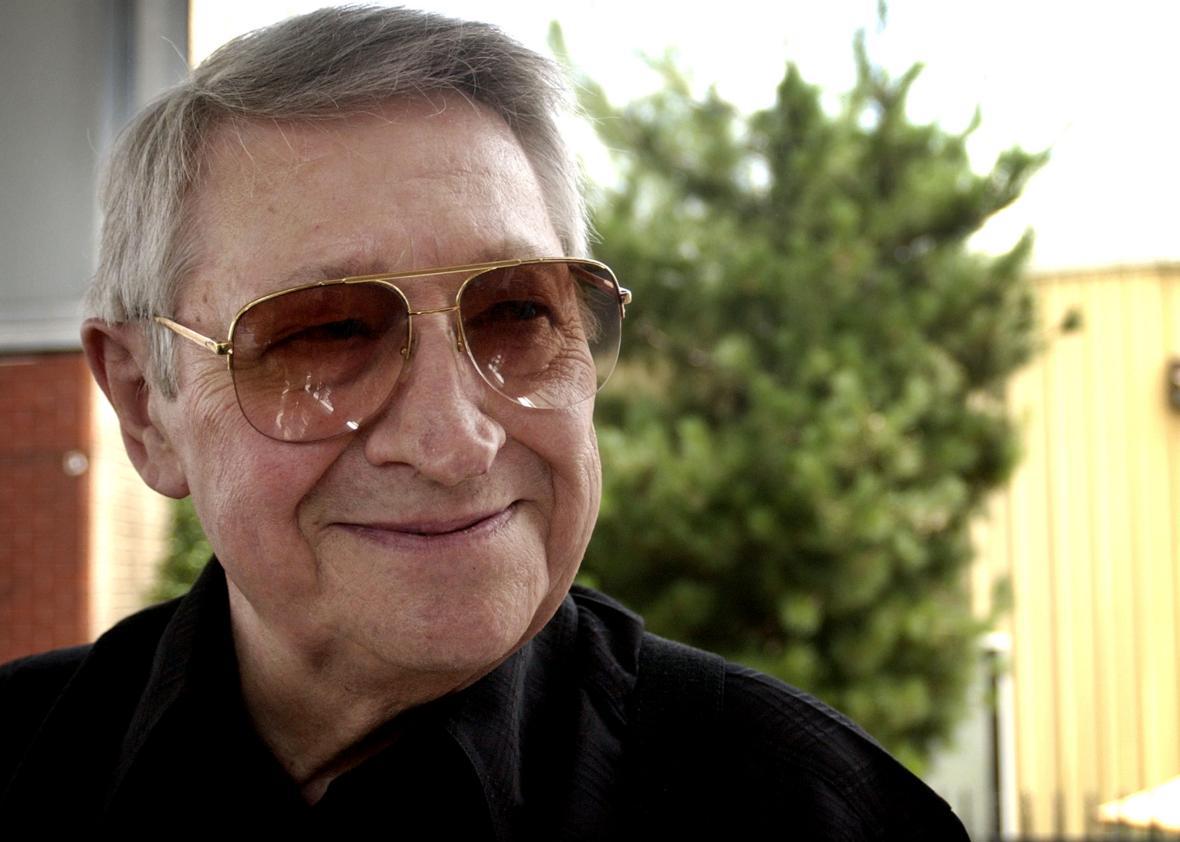Scotty Moore died Tuesday at the age of 84, the Memphis Commercial Appeal reports. Moore was the lead guitarist for Elvis Presley on the Sun Studios recordings that launched Presley’s career. He met the 19-year-old singer on July 4, 1954, at the suggestion of record producer Sam Phillips. The very next day Moore, along with Presley and bass player Bill Black, recorded the first of many groundbreaking and influential tracks that helped defined rock and roll. Although Moore would later tell interviewers he had simply been in the right place at the right time, it’s easy to demonstrate that he was being modest. Start here, with Arthur “Big Boy” Crudup’s 1946 blues record “That’s All Right,” and pay attention to the guitar.
Crudup’s twangy, driving rhythm is nothing to sneeze at, but listen to what Scotty Moore did with the song, on his very first day with Elvis:
It’s not a question of Moore simply picking up on what other people were already doing by 1954. Compare Arthur Gunter’s “Baby Let’s Play House,” brand new at the time of the Sun sessions, with Moore’s version. And good luck finding Moore’s way-ahead-of-its-time “Milkcow Blues Boogie” riff elsewhere in 1954, much less in the Sleepy John Estes original or the string-heavy Johnny Lee Wills version. He was doing something new, even if, like virtually everything in music, what he was really doing was combining old things in a new way.
His technique came from Western Kentucky: former slave Arnold Schultz’s thumbstyle guiltar, which Moore knew by way of Merle Travis. Listen to the way Travis uses his thumb to carry the bass while simultaneously playing either chords or solos in this 1947 recording of “Nine Pound Hammer,” and you can hear part of what Moore brought to the table:
But if Moore’s technique came from coal country, his sound had more cosmopolitan roots. Jazz guitarist Tal Farlow was one of his long-acknowledged influences, and under the vibraphone on the Red Norvo Trio’s 1950 recording of “Night and Day”—Farlow on guitar, Charles Mingus on bass—there’s a preview of where Moore would take things:
There’s no question Elvis was one of the magic ingredients here, as a quick listen to Moore and Black’s earlier single with Doug Poindexter and the Starlite Wranglers makes abundantly clear. (Billboard’s very, very generous review: “Good ditty gets an okay chanting from nasal-voiced Poindexter.”) But Scotty Moore contributed nearly as much to the sound of those first Elvis records as Presley’s voice.
That creative contribution didn’t translate to financial success, however. In 1957, after touring with Presley while recording hits like “Hound Dog” and “Heartbreak Hotel,” Moore and Black both quit. Elvis, already a millionaire by then, had been paying them “$100 a week at home and $200 on the road plus a $1,000 Christmas bonus,” according to an Associated Press story at the time. “I didn’t expect to get rich on this and I certainly don’t begrudge him any of the success he has had or what it brought him, but I did expect to do better than I have and to make a good living for my family,” Moore told reporters. By the time the pay issues were resolved, Elvis was off to West Germany.* After his return, Elvis gave up touring, and Moore’s time in his band was over.
Scotty Moore went on to work as a producer, release a solo album (the modestly titled The Guitar That Changed The World!—Sam Phillips fired him over it), and start his own studio. He reunited with Elvis once in 1968, playing on the NBC comeback special that relaunched Presley’s career. But Moore, along with other earlier Elvis collaborators, turned down what he described as insultingly low offers to join him in Las Vegas, and the two men never spoke again. Moore sold his guitars and quit playing entirely, making his living from a tape duplication service and a print shop, until Carl Perkins coaxed him back into a recording studio in 1992. After that, he performed intermittently until his arthritis made it impossible about 10 years ago. He died at home, near Nashville.
Scotty Moore made, by the New York Times’ reckoning, about $30,000 for his work with Elvis Presley. On his own, he never came anywhere close to the creative peak he hit in 1954 and 1955. He didn’t have to: He got it right the first time.
Correction, June 29, 2016: This article originally misstated that Elvis Presley’s military service was in Korea. He was stationed in West Germany.
